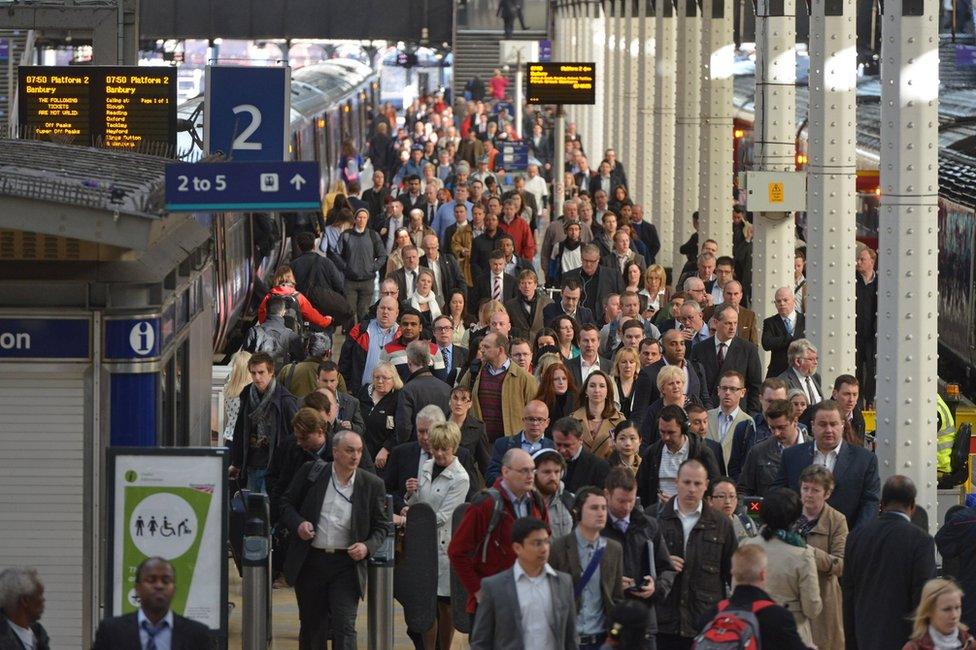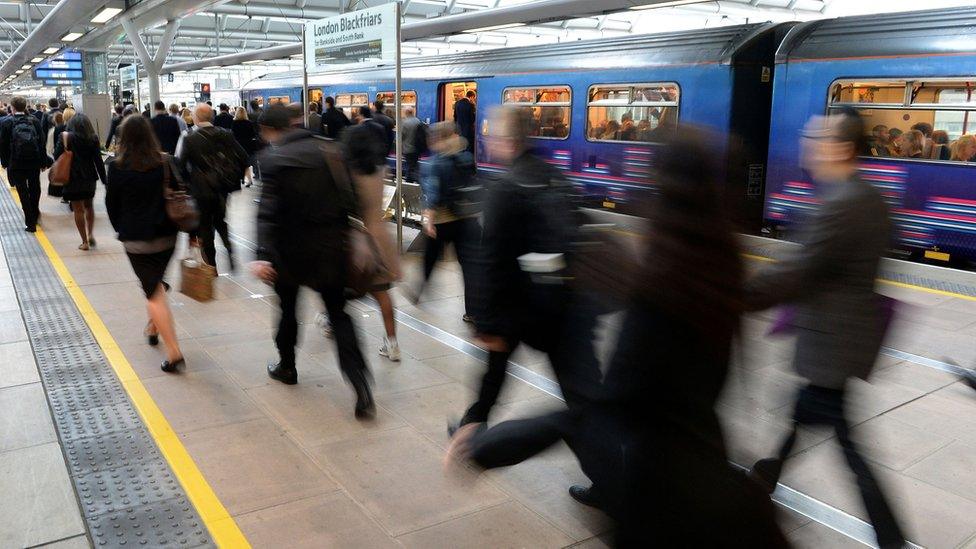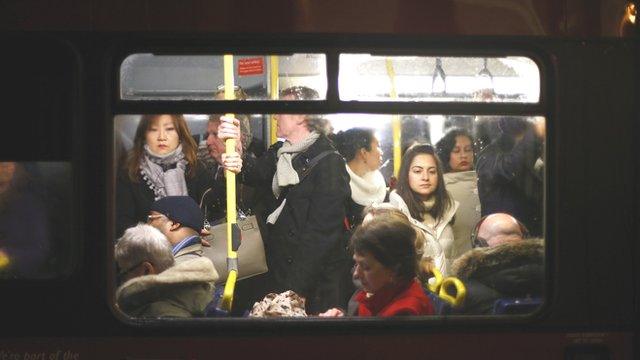Commuting: Rise of 72% in journeys over two hours a day
- Published

The number of people commuting more than two hours a day has risen by 72% in the past decade, research shows.
A report by the Trades Union Congress (TUC) said more than three million UK employees now had long commutes.
It said the increase was because of people being "priced out" of living in areas near their workplaces.
But the government said investment in help-to-buy schemes, housebuilding and infrastructure was helping to rectify this.
Nearly 83,000 employees were interviewed as part of the research.
The largest increase in long commutes was in the South East, South West and East Midlands of England and in Wales.
The results also suggest women are affected most by the increase in long commutes, with a 131% rise in women travelling three hours or more.
The study drew on data collected by the Office for National Statistics (ONS) from 2004 as part of the Labour Force Survey for the autumn quarter.
Flexible working
The TUC said people were spending longer getting to work because of what it said were high house prices and rents and poor infrastructure.
"Employers need to address the problem that many of their staff are spending an ever-increasing number of hours getting to and from work," TUC general secretary Frances O'Grady said.
"It's bad enough most of us spend an hour a day getting to and from work, but spare a thought for those extreme commuters who travel for more than 10, or even 15, hours a week."
She added: "More home and flexi-working could easily be introduced to allow people to cut their commutes and save money.
"This would not only be popular with workers, but fewer, better-spaced journeys would help to beat overcrowding on the roads and railways."

But a government spokesman said its plans had helped combat housing problems and "got Britain building again" - with more new homes, a £15bn scheme to increase conditions and capacity on roads in England, and "the most ambitious programme of rail upgrades since the Victorian era".
"Government initiatives have helped more than 230,000 people to buy since 2010, and we are supporting record investment in transport infrastructure - more than £127bn between now and 2020," he said.
- Published22 February 2014

- Published4 June 2015